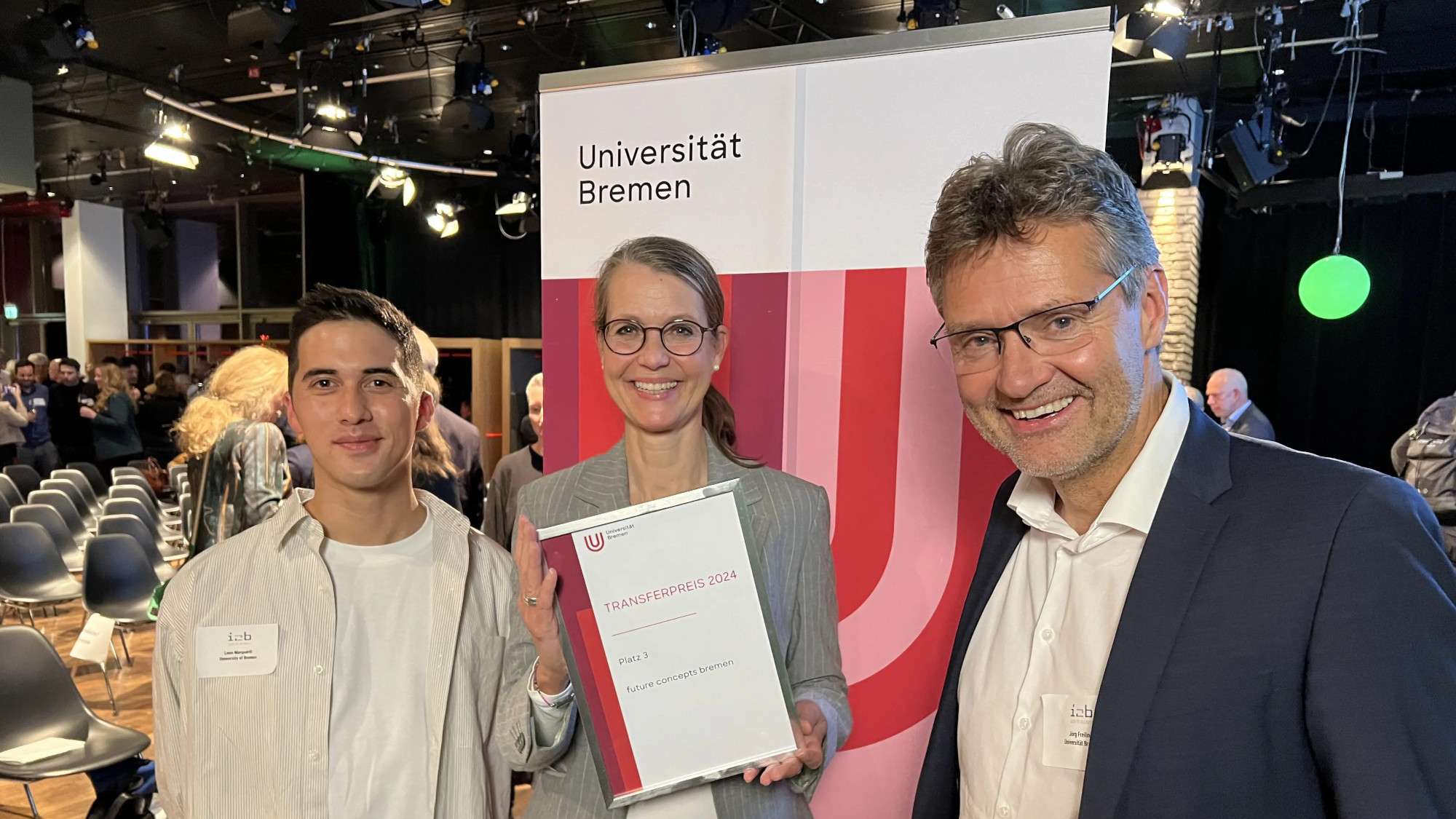
© Alexander Flögel
future concepts bremen – Gaining Industry Experience, Shaping Innovation
How students and companies develop solutions for the future together
The innovative teaching format future concepts bremen (fcb) has brought students and companies together for the past eight years to collaborate and develop solutions for the future. We spoke with Prof. Dr. Jörg Freiling, the project manager of the fcb, who described why this project is beneficial for both parties.
How did the idea for future concepts bremen come about?
The idea was born in 2015 during an EU project meeting in Denmark. In a conversation with a Finnish colleague, I learned about a platform in Tampere that brings students and companies together to collaborate on projects as part of a degree program. Back in Bremen, we considered how we could implement a similar model. This initially led to the creation of “Digilab,” which we later renamed future concepts bremen to underline our focus on strategies for the future.
Which students can take part in fcb?
The offer is open to all motivated students, especially those pursuing a bachelor’s degree. We are not looking for students in specific majors, but for people who are creative and interested in practical, innovative projects. Interdisciplinarity is important to us, so we often work with those in combination programs such as engineering management degrees or Information Systems and Management.
How does attending benefit students?
Students gain a wide range of experience. Of course, they receive credit points towards their degrees. They also learn to work under time pressure in a practical, project-oriented way, which strengthens their personal and methodological skills. They learn about agile working methods such as design thinking and make contacts in their field through working with companies. This can help them plan their careers and make the transition to the working world a little easier.
How do companies benefit from working with fcb?
Companies get access to fresh ideas and innovative solutions without having to make large investments. They can bring up topics for which they lack resources in their day-to-day business and work on them with motivated students. Another important benefit is the opportunity to get to know potential future specialists and win them over, which is invaluable in light of the shortage of skilled workers.
How can we expect future concepts bremen to develop?
We are always looking to improve our strategy. We are currently working on how to deliver the solutions we have developed to companies more efficiently. Our goal is much more than to start projects; we want to see them through to the end and make sure they are a success.
What would tell students and companies who are considering taking part in fcb?
I would advise students to take the chance to put the knowledge gained during their degree to use, learn new ways of doing things, and make some valuable contacts. It is a great opportunity for both personal and professional development. I would tell companies that being open to collaboration helps develop innovative ideas and get to know potential professionals. Together, we can create solutions that move their business forward.
Further information
future concepts bremen projects are organized by the Chair in Small Business & Entrepreneurship (LEMEX) at the University of Bremen, with funding from the Senator for Economy, Ports and Transformation. Leon Marquardt and Silke Melzer-Counen guide students every step of the way, with regular coaching and presentations on key milestones during the 100-day process. In 2024, the teaching format was one of the top three projects out of a total of 25 for the University of Bremen’s Outreach Award.
We have worked on a number of projects in recent years. These include helping a company in the compensation tree-planting sector to identify its target market and develop a strategy for entering it, as well as creating a market plan for co-working spaces in the Alte Tabakspeicher 2. Another project involved analyzing the potential for agile working methods at hanseWasser Bremen GmbH. We have worked with several large companies such as the Daimler branch in Bremen, Airbus SE, and Sparkasse Bremen AG. We have teamed up with some startups too, such as TRiLiTEC GmbH, which develops sensors for quality determination, and Flexality GmbH, which helps optimize electricity costs.